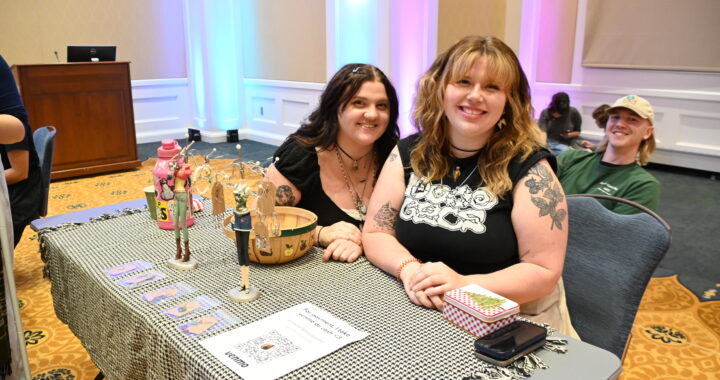Fredericksburg fights a different kind of epidemic: littering
3 min read
Outreach programs are offering students and community members the opportunity to clean up their local environment. With the rise of COVID-19, disposable masks have contributed to a higher amount of litter in the community.
by GRACE SCHUMACHER
Staff Writer
As the weather improves and college students venture onto campus and into the city of Fredericksburg, it is hard to ignore that things look a little different. A little… dirtier.
This growing litter issue has been sneaking up on the residents of Fredericksburg for quite a while and is something that needs to be addressed.
“It seems almost impossible lately to take a step in any direction without running into a stray disposable mask or plastic bag,” said junior environmental geology major Claire Bradley. “Garbage is freaking everywhere!”
As we continue to battle the COVID-19 pandemic, we are faced with a new epidemic: trash! Just drive or walk down any street and look off to the side. Fredericksburg’s roads and lawns are covered in plastic bottles, cans, take-out food packaging and other litter.
Litter can best be described as any kind of trash thrown carelessly in small amounts, especially in locations where it doesn’t belong. Littered roadsides, streets and parks aren’t just unpleasant to look at—garbage dumped improperly is actually very harmful to the environment.
“Plastics can exist for thousands of years or more on Earth,” said junior environmental conservation major MC Woodrum. “I just think it’s not worth littering at your convenience when that trash will stay there far past when we’re gone.”
Litter is more than just an eyesore, it’s a noticeable issue around the world, including right here in Fredericksburg. While local officials and community clean-up groups have been putting in efforts to tackle this issue, littering is going to continue unless people are made aware of its impact.
Friends of the Rappahannock (FOR) is a Fredericksburg-based volunteer group with the goal of creating and sustaining a healthy and scenic Rappahannock area. FOR hosts annual “Rappahannock River Cleanups.” They supply equipment and trash bags for their volunteers, locate cleanup sites and even reserve dumpsters and trucks to remove the collected trash and debris.
Kyle Close, a senior business administration major, is a COAR council leader and has been heading student cleanups in the city and along the river since Sept. 2020. The Environmental Awareness and Action program is partnered with FOR. Their most recent large-scale cleanup collaboration was at Old Mill Park on Aug. 28 where they collected over 140 pounds of trash.
COAR is also hosting “Into the Streets,” another large-scale student volunteer event on Sept. 18 that, among other things, will be about picking up trash. UMW students can find out more information by going to their MyUMW page and looking at the calendar of events.
The University is also making efforts to lessen its carbon footprint and monitor its waste. As dining locations on campus have begun to lift some COVID restrictions and expand their hours of operation, restaurants on campus have begun to switch to plant-forward dining by eliminating plastic products and implementing paper bags and straws.
“UMW seems to promote environmental awareness better than a lot of colleges,” said Close. “Students have the ability to lead and carry out environmental initiatives with a good amount of support from the school. I think students do see trash around the community and are interested in finding ways to reduce it, which is why the cleanups have been popular.”
UMW also has a lot of community partnerships that work on environmental stewardship and are regularly promoted.
While becoming educated on the impact of littering is an important first step, in order to tackle the issue, the UMW community must continue recycling, participating in community cleanup events or simply waiting until a trash bin is nearby before disposing of trash. All of these are opportunities to work towards a cleaner, healthier environment and a more beautiful Fredericksburg.


